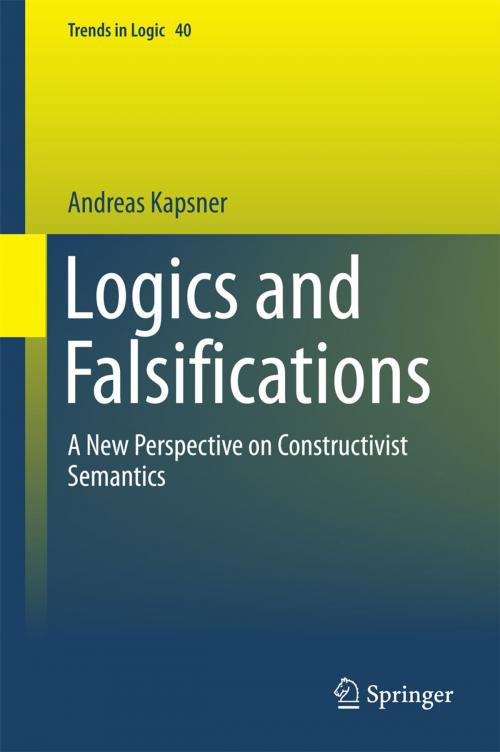Logics and Falsifications
A New Perspective on Constructivist Semantics
Nonfiction, Religion & Spirituality, Philosophy, Logic, Computers, Advanced Computing| Author: | Andreas Kapsner | ISBN: | 9783319052069 |
| Publisher: | Springer International Publishing | Publication: | January 7, 2015 |
| Imprint: | Springer | Language: | English |
| Author: | Andreas Kapsner |
| ISBN: | 9783319052069 |
| Publisher: | Springer International Publishing |
| Publication: | January 7, 2015 |
| Imprint: | Springer |
| Language: | English |
This volume examines the concept of falsification as a central notion of semantic theories and its effects on logical laws. The point of departure is the general constructivist line of argument that Michael Dummett has offered over the last decades. From there, the author examines the ways in which falsifications can enter into a constructivist semantics, displays the full spectrum of options, and discusses the logical systems most suitable to each one of them. While the idea of introducing falsifications into the semantic account is Dummett's own, the many ways in which falsificationism departs quite radically from verificationism are here spelled out in detail for the first time.
The volume is divided into three large parts. The first part provides important background information about Dummett’s program, intuitionism and logics with gaps and gluts. The second part is devoted to the introduction of falsifications into the constructive account and shows that there is more than one way in which one can do this. The third part details the logical effects of these various moves. In the end, the book shows that the constructive path may branch in different directions: towards intuitionistic logic, dual intuitionistic logic and several variations of Nelson logics. The author argues that, on balance, the latter are the more promising routes to take.
"Kapsner’s book is the first detailed investigation of how to incorporate the notion of falsification into
formal logic. This is a fascinating logico-philosophical investigation, which will interest non-classical logicians of all stripes."
Graham Priest, Graduate Center, City University of New York and University of Melbourne
This volume examines the concept of falsification as a central notion of semantic theories and its effects on logical laws. The point of departure is the general constructivist line of argument that Michael Dummett has offered over the last decades. From there, the author examines the ways in which falsifications can enter into a constructivist semantics, displays the full spectrum of options, and discusses the logical systems most suitable to each one of them. While the idea of introducing falsifications into the semantic account is Dummett's own, the many ways in which falsificationism departs quite radically from verificationism are here spelled out in detail for the first time.
The volume is divided into three large parts. The first part provides important background information about Dummett’s program, intuitionism and logics with gaps and gluts. The second part is devoted to the introduction of falsifications into the constructive account and shows that there is more than one way in which one can do this. The third part details the logical effects of these various moves. In the end, the book shows that the constructive path may branch in different directions: towards intuitionistic logic, dual intuitionistic logic and several variations of Nelson logics. The author argues that, on balance, the latter are the more promising routes to take.
"Kapsner’s book is the first detailed investigation of how to incorporate the notion of falsification into
formal logic. This is a fascinating logico-philosophical investigation, which will interest non-classical logicians of all stripes."
Graham Priest, Graduate Center, City University of New York and University of Melbourne















